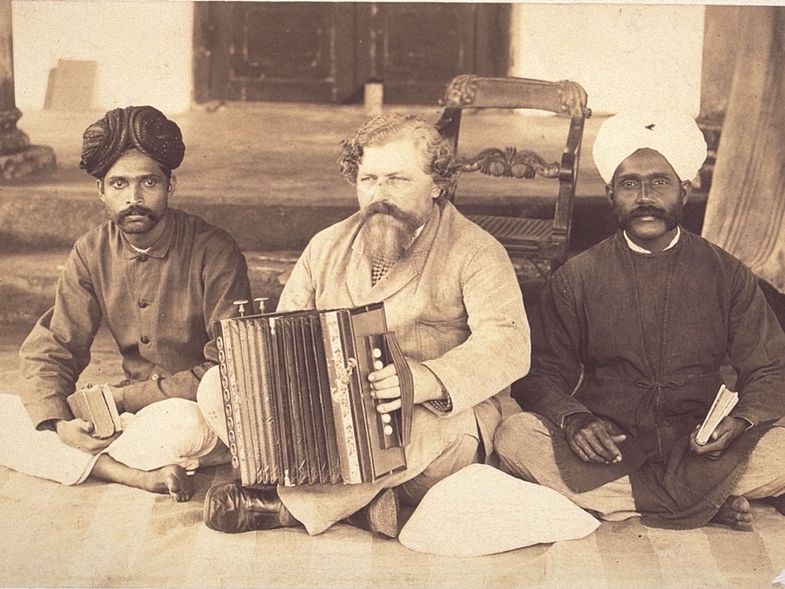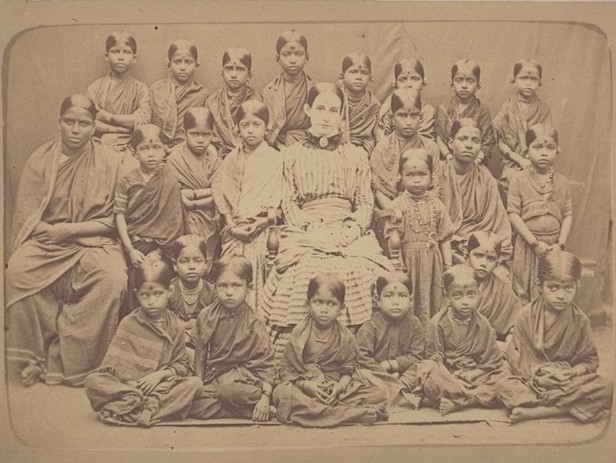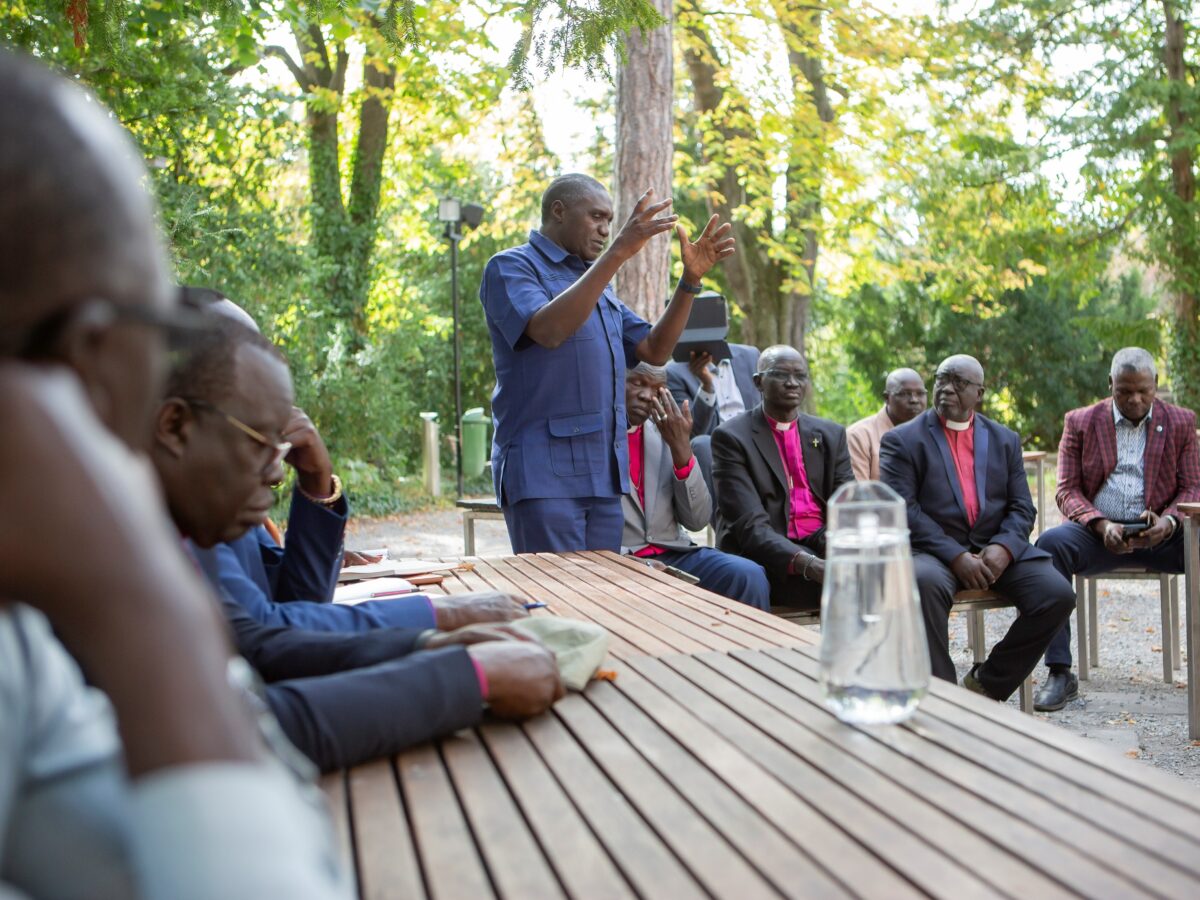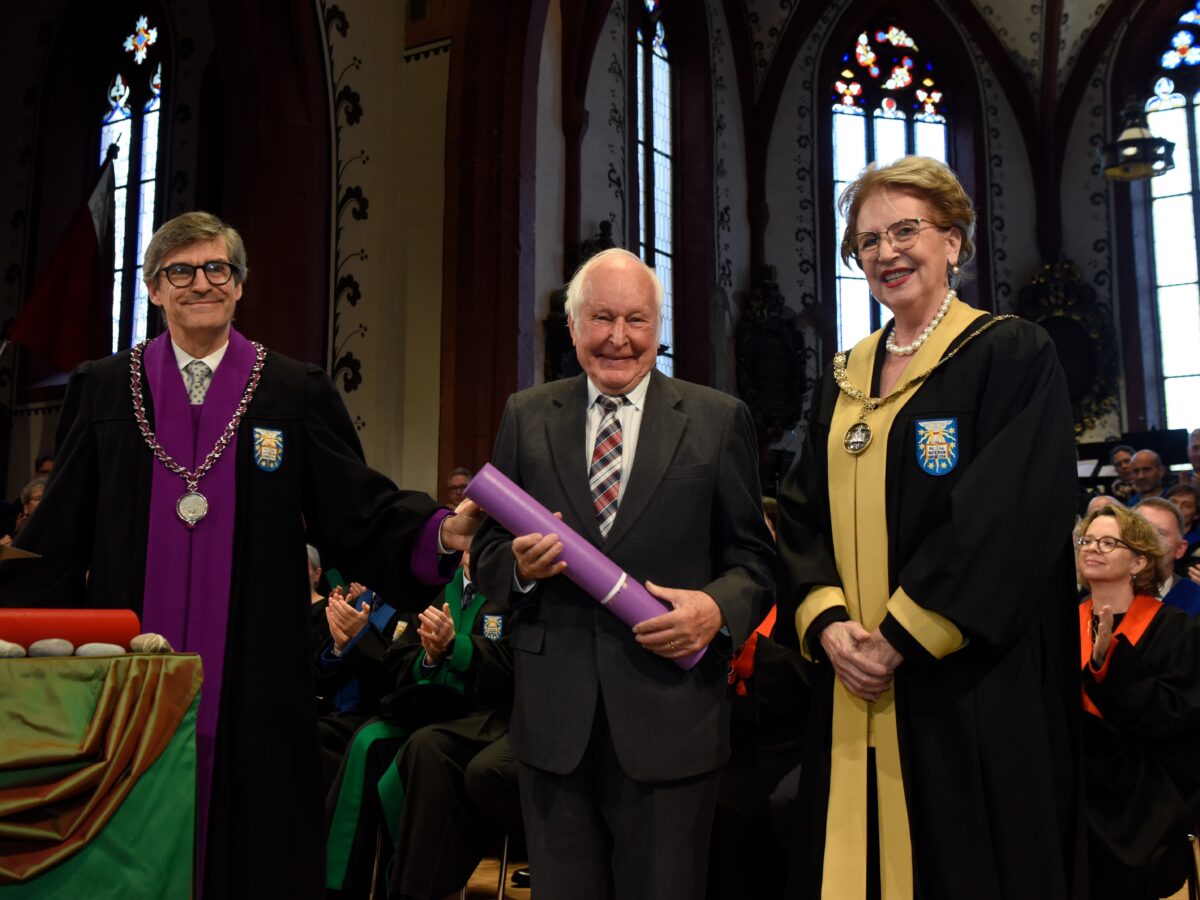"The relationship between mission and colonialism cannot be reduced to a simple formula," historian Dr. Karolin Wetjen notes in the webinar. She is researching German mission societies that were active in East Africa around 1900. Most mission societies did not see themselves as colonial actors, she says. On the other hand, directors of the Leipzig Mission Society, for example, approved of the German Empire's colonial expansion in Africa.
There were also different attitudes and methods in the concrete missionary activity. The Leipzig missionaries in the Kilimanjaro region (Tanzania) relied heavily on school education in addition to missionary preaching. They used mainly religious teaching materials and thus mixed teaching and preaching, cultural and religious influence. "Education for work" and so-called morality was an integral part of Christian instruction and conversion to Christianity.
Karolin Wetjen concludes that "civilizing mission and proselytizing mission" cannot be separated from each other. Their relationship had been renegotiated again and again.
The Basel Mission in India
Dr. Mukesh Kumar from Delhi, who is currently researching at ETH Zurich, is immersing himself in the 1840s and the activities of the Basel Mission in Mangalore in southern India for his historical-anthropological investigations. In doing so, he focuses on the interactions of the Basel missionaries with three social groups. With the Brahmins, the elite in the Hindu caste system, with the Billava, a low-ranking caste that lived primarily from palm wine production, and with the Hindu sect of the Lingayat.
The Basel missionaries rejected the caste system and social inequality and also morally condemned the "tyrannical rule of the Brahmins". They nevertheless tried to convert them to Christianity, believing them to be intellectually, spiritually and culturally superior to other religious groups. However, their missionary efforts met with resistance from the Brahmins because the missionaries' ideal of equality directly attacked the Indian caste hierarchy. The Billava were considered "sinful" people by the missionaries because of their alcohol consumption and ancestor beliefs. Nevertheless, they were the largest group of converts at the Basel mission. One reason was that the mission provided alternative work opportunities for the Billava when the English colonial government imposed a high palm wine tax. Finally, the Lingayat aroused the interest of the missionaries because they also believed in the return of a savior. With the Lingayat, the Basel missionaries entered into intense theological disputes to determine the terms of their conversion to Christianity.
For Kumar, a mixture of religious and cultural goals is also visible in the approach of the Basel missionaries. This is particularly evident in the work with the Billava. The missionaries used the argument of "Christian morality" to urge the Billava to abstinence and to lead a hardworking life.
Arrogance as a fundamental attitude
The presentations by Mukesh Kumar and Karolin Wetjen were met with great interest by the up to 70 participants in the webinar. Numerous questions were formulated in the chat.
Other exciting insights came up in the answers. Kumar explained that the missionaries offered the Billava economic alternatives to palm wine production in order to be successful in preaching and propaganda for a Christian, especially abstinent life. Thus, new opportunities for work and income grew out of missionary activity in Mangalore - much as schooling increased in the Kilimanjaro area as a result of missionary activity.
Behind these promotional activities of the missionaries, however, was a fundamental attitude of arrogance. This is what both Kumar and Wetjen conclude. The missionaries acted as convinced representatives of a European-influenced religion and culture, which they regarded as superior.
Text: Christoph Rácz; Image: Basel Mission Archives C-30.51.013
Other scheduled webinars in the Mission-Colonialism Revisited series:






